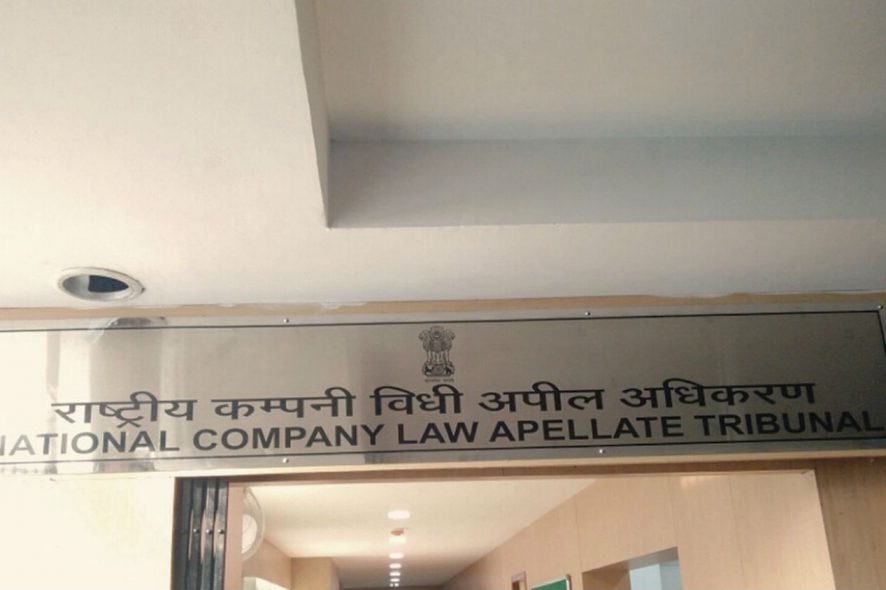National Company Law Appellate Tribunal (NCLAT): The Bench comprising of Justice Jarat Kumar Jain (Judicial) and Balvinder Singh (Technical) and Dr Ashok Kumar Mishra (Technical), Members, while allowing the present appeal held that NCLT’s order of barring an auditor from auditing for 5 years and misusing his position as — unsustainable.
Appellant filed an appeal against the NCLT’s order dated 06-02-2019.
Brief facts of the case are that Respondent 2 company came out with an initial public offer and issued a prospectus to raise public funds.
On 20-03-2017, Respondent 1 through MCA ordered an inspection of Respondent 2 Company on the basis of the complaint against Respondent 2 Company alleging siphoning of investors’ money and also about irregularities in statutory compliances including non-listing of the company with Pune Stock Exchange, non-issuance of financial statements after 1995.
Respondent 1 through MCA forwarded inspection report of respondent 2 company, with a direction to take action under Section 140(5) of the Companies Act, 2013. On the basis of the inspection report, a Special Company Case was filed under Section 447 of the Act against the appellant for providing clean audit reports to respondent 2 Company.
Respondent 1 on 26-11-2018, filed a Company Petition before the NCLT, Mumbai Bench under Section 140(5) of the Act, wherein NCLT passed ad interim order whereby it was directed that the appellant shall cease to act as statutory auditor of Respondent 2 Company.
NCLT also directed that appellant shall not be eligible for being appointed as an auditor of any company for a period of 5 years. He shall also be liable for action under Section 447 of the Act.
Being aggrieved with the above, appellant filed the present appeal.
Counsel for the appellant submitted that Second proviso to sub-section (5) of Section 140 of the Act was enforced w.e.f. 01-06-2016. From this date, NCLT was conferred with the jurisdiction to exercise powers under the above said proviso. Therefore, NCLT cannot invoke jurisdiction for the offence relating to FYs 2014-15 and 2015-16.
It has also been submitted that, no other evidence or records except for the inspection report have been placed to prove that the appellant directly or indirectly acted in a fraudulent manner or colluded in any fraud. Appellant has not committed any act, omission or concealed any fact in any manner with the intent to deceive or gain undue advantage from Respondent 2 and its stakeholders.
Appellant had filed an affidavit with respondent 1 stating that he accepted the interim order passed by NCLT.
Respondent 1 submitted that the appellant accepted the interim order passed by the NCLT, hence on this ground alone appeal may be dismissed. Inspecting officer also recorded the statements of the appellant wherein he admitted that he has nor called for any books of accounts and statutory register from the company and not audited the books of accounts of the company.
Decision
Tribunal noted that the directors of respondent 2 company did not spend company public issue money for the purpose for which the public issue was made, did not meet the promise made in the prospectus, have diverted the funds and thus the prospectus dated 10.10.1996 issued by the respondent company contained false and misleading promises.
Commission further observes that the auditor during the audit did not call for any books of accounts and statutory register from the company. However, he signed an audit report of the company for the relevant period.
Balance sheets and FYs for 2014-15 and 2015-16 show that the company has not carried out any business and the respondent company has not filed any statements before the ROC since its incorporation.
Hence, while concluding the tribunal stated that, appellant issued an audit report for the Financial Year 2014-15 and 2015-16 on 5.9.2015 and 05.09.2016 respectively. Appellant has issued the audit report for the FY 2015-16 on 5.9.2016 before that the 2nd proviso to sub-section (5) of Section 140 of the Act came into force with effect from 1.6.2016. Hence NCLT can exercise the powers in above-referred provision.
The act of the auditor was negligent but there is no evidence to show that he has misused his position as statutory auditor of the company.
Thus, the findings of NCLT are not sustainable and in view of the same the impugned order is set aside. [Mukesh Maneklal Choksi v. Union of India, 2020 SCC OnLine NCLAT 93, decided on 17-02-2020]






